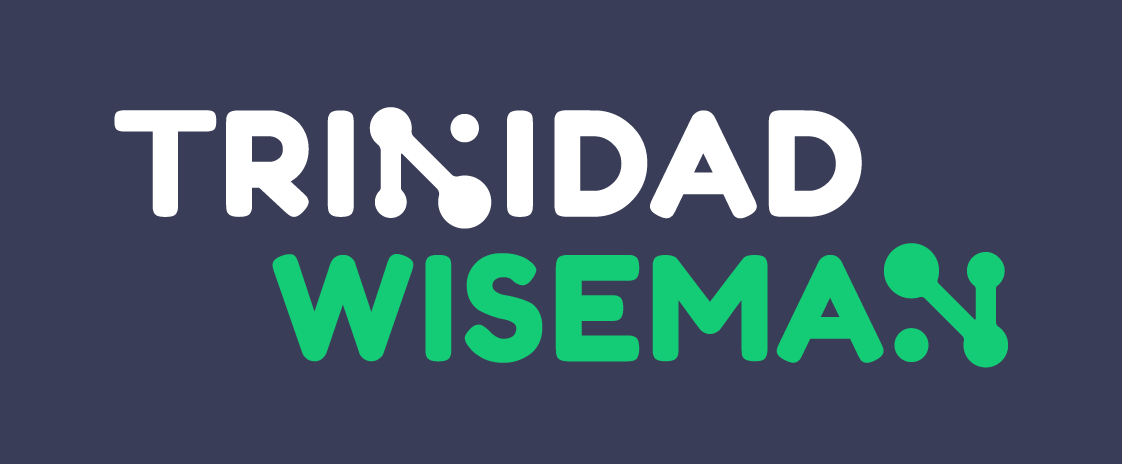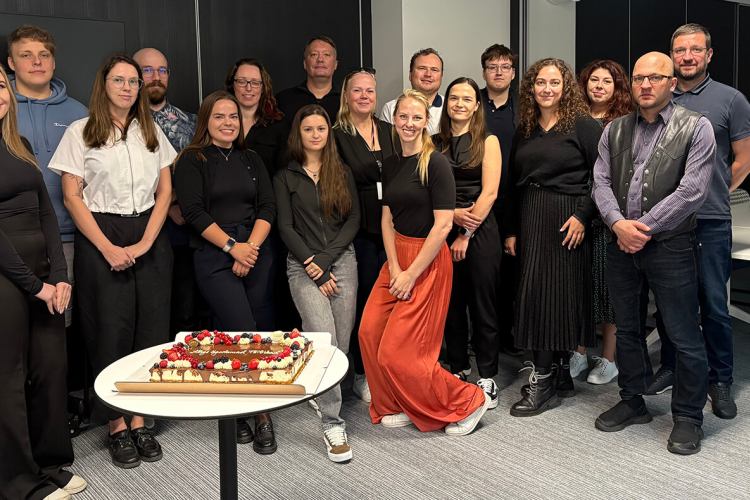Drupal as a Powerful and Flexible Helper in Business Digital Transformation Challenges
Imagine you're facing a new challenge - transforming your business digitally. Technology offers powerful tools that can help achieve your company's goals. Drupal is one of these widely used and recognized technologies. This open-source content management system is used worldwide in businesses, providing a solid and secure platform for developing digital solutions.
There are some myths and misconceptions about Drupal in popular discourse, but these shouldn't mislead you. Software selection should be based on specific needs. Like any technology, Drupal has its strengths and limitations, but it can be the best choice for addressing your company's digital transformation and technological challenges. This article will discuss this in more detail and provide examples from our projects.
Trinidad Wiseman's team in Rakvere is largely specialized in Drupal. Our small-town team has an average Drupal development experience of 11.5 years. Specialists like Egon, Madis, Ragnar, and Risto's experience and practical knowledge have met client expectations in dozens of successful projects.
We are there for our clients even after active development ends - our specialists handle the maintenance and further development of numerous companies' software to keep technology up-to-date and secure and integrate new solutions and features for users.
Drupal's versatility illustrated by the OIXIO.ee online store
Primarily developed by Madis and Ragnar, the MAX 123 (max.ee), now known as the OIXIO online store, required extensive customization due to its unique features, stepping outside the standard Drupal framework. The project's timeline, security requirements, and complexity challenged the entire team.
One aspect that makes the online store unique is its administrative solution, which allows OIXIO's sales department to monitor the inventory statuses of various suppliers in real time from a single location - Drupal. This system enables product filtering, grouping and tracking according to a set rulebook. To achieve the desired result, a separate database with two-stage import and quick search was created.
On the other hand, the e-store is highly flexible in setting up campaigns. In the admin panel, very specific and detailed campaigns for prices, gifts, and discounts can be created based on product features and desired criteria. For example, logged-in users can receive a 10% discount on all 14-inch Windows computers with a base price higher than €1500.
Despite Drupal defining quite a specific framework, this project is a prime example of how experienced specialists can create customized and complex information systems on the Drupal platform. Furthermore, the administration environment is simple enough for the company's sales department to perform daily monitoring and setting adjustments directly in the admin interface without any issues.
Drupal's flexibility exemplified by the Bar Association's exam environment and continuing education portal
Sometimes, projects need to be taken over from other development firms, posing challenges due to unfamiliar codebases and often outdated or incomplete technical documentation. Additionally, existing issues in the solution may not have been previously resolved. Developed further by our developers, Risto and Madis, the Bar Association's project encompasses two distinct areas: an exam environment and a continuing education portal.
The exam environment posed a significant challenge in terms of automating the exam process. First, an administrator must be able to create an exam in Drupal, setting the date, adding the exam schedule, location, room, and its capacity. Then, the exam questions and case study must be configured. This setup allows users to register for the exam according to the defined parameters.
Once a user successfully registers for the exam, they are directed to a pre-exam page with details of the exam time and location. The exam begins automatically at the pre-defined time. After the time limit is reached, the exam automatically closes and saves the examinee's responses, regardless of whether they were completed.
The exam test results are automatically checked, and upon a positive outcome, the case study writing part is unlocked. After the written part is completed, committee members are assigned, and case studies are sent anonymously to evaluators to ensure impartiality. After the evaluation period, the system automatically generates a list of candidates who have successfully passed the exam and sends invitations for the oral part.
The system automatically generates continuing education portal user accounts for all users who successfully pass the exam and creates the first report for accumulating points from continuing education courses.
In the continuing education portal, users must submit a report every five years, showing they have accumulated enough points from various courses during the active period. Points can come from the Bar Association's courses and external sources. While points from the Association's courses are automatically added to the report, users must manually add points from external trainers.
The main complexity lies in Drupal's infrastructure, as the previously described solutions are located in one system, which means that additional developments and maintenance work must be carefully planned, taking into account the entire system, including the exam period. Meeting business requirements posed a challenge for developers, who had to step outside the bounds of Drupal once again.
However, we learned that it is essential to start with a detailed analysis when taking over projects, which helps ensure a thorough understanding of functions and their interrelationships and the code.
Drupal's sustainability, as illustrated by Photoexpress
Photoexpress is a prime example of how quality code is sustainable and ensures long-term productivity for the company with minimal costs. Egon began developing the Photoexpress solution 11 years ago, with 5 years of software development experience at the time. He continues to carry out its additional developments and maintenance.
The Photoexpress platform allows users to order paper photos without leaving home and also offers simpler photo editing directly from the ordering system. The system has many specially created modules that offer end-users various functions that simplify the ordering process and are not available by default on the Drupal platform. For example, a file system and its logic have been created to regulate the placement of pictures in directories and how they are moved in the event of orders.
Similar to the previously mentioned oixio.ee online store, Photoexpress uses rules that allow for the creation of diverse sales campaigns. For example, discounts can be added depending on the number of pictures ordered, both automatically and manually entered by users.
Another special feature of the Photoexpress system is the ordering of pictures. Depending on the location chosen by the user for receiving the pictures, the system automatically selects the lab to which the pictures are sent, both for pictures available for pickup in-store and for those sent by post to a home address across Estonia.
A convenient view has been created on Drupal's admin side, where one can view order statistics. The entire e-store management is optimized to automate processes, and the administrator only needs to make necessary price changes and export desired reports.
Drupal's advantage in assigning users and their rights is utilized here. Another important security measure is that completed orders are deleted from the entire system after a set time, thereby ensuring the protection and privacy of user data.
Despite the solution being created a decade ago, consistent maintenance has ensured the system's security and widespread use, thereby creating ongoing profit with minimal operating costs. Here, we can confirm that a larger initial investment in development has paid off over the years.
Drupal's suitability for small but complex websites, as demonstrated by the Tartu and South Estonia Culture Window
The Tartu and South Estonia Culture Window environment allows people in South Estonia to create and share local events with a wider audience, i.e., anyone who visits the kultuuriaken.tartu.ee website. The platform allows the community to contribute to cultural life and create a sense of unity. Our developer Egon created this solution on the Drupal platform in close collaboration with the client.
A multi-stage form has been created for adding events, where the user fills in all the mandatory fields about the details of their event. The form structures the initial data into a uniform format, seamlessly for the user, to ensure maximum automation.
The information entered reaches the administrator for approval, and after reviewing the information, the event can be easily published. The reliability and relevance of the events are key roles of the administrator. Automating this step would be technically possible, but not sensible from a business perspective. Additionally, external interfaces have been added to the site, whose information updates automatically and does not require separate approval from the administrator.
We are pleased that we have been able to contribute to the development of cultural life and community building in Southern Estonia. It is also a good opportunity to dispel the myth that Drupal is not a suitable solution for small websites. The Tartu and Southern Estonia Culture Window may seem small, but the system is quite complex, and Drupal perfectly suits it.
Drupal's application of payment orders using Hooandja as an example
Hooandja is Estonia's first crowdfunding platform. It was created by our most experienced Drupal developer, Ragnar, and it helps creators and beginners find the necessary funding for their projects and ideas. Despite a somewhat nostalgic design that has remained essentially unchanged since its creation, the website still fulfils its purpose today. It should be noted that the platform was created in the early days of Drupal 7.
A unique feature of Hooandja is the creation of custom payment orders. The project applicant is given a reward or discount according to the size of their support, which differs from the payment solutions we are accustomed to in everyday life.
Although there are several crowdfunding platforms in Estonia today, Hooandja stands out with its innovative approach and early contribution to the Estonian crowdfunding world, proving that Drupal is a flexible tool for creating custom web applications.
In conclusion
Drupal is a powerful platform widely used in companies and organizations worldwide. Drupal has a large community, and the resolution of basic problems occurs as a collective effort by community members. While Drupal may not be suitable for all solutions, it is worth considering when you need a flexible and secure web application.
Built-in interfaces optimize development costs and make Drupal an attractive choice for digital transformation and web development. Using Drupal can help your company achieve its goals and offer users excellent digital solutions.












